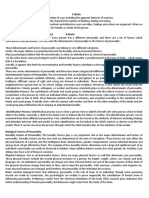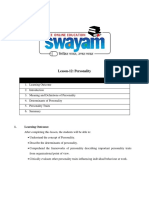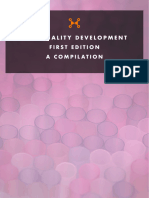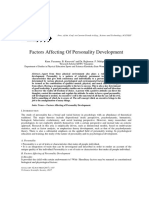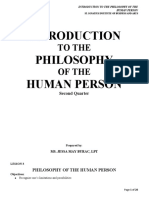0% found this document useful (0 votes)
315 views5 pagesUnit 1
Personality refers to individual differences in characteristic patterns of thinking, feeling and behaving. It arises from within individuals and remains consistent throughout life. Personality is shaped by multiple factors, including genetics, environment, physical traits, situations, culture and intelligence. In the workplace, personality influences behaviors like motivation, leadership, performance and conflict management. It also affects decision-making, teamwork, attitudes and independence. Understanding personality provides insights for effective organizational behavior and goal accomplishment.
Uploaded by
Divyank SurumCopyright
© © All Rights Reserved
We take content rights seriously. If you suspect this is your content, claim it here.
Available Formats
Download as PDF, TXT or read online on Scribd
0% found this document useful (0 votes)
315 views5 pagesUnit 1
Personality refers to individual differences in characteristic patterns of thinking, feeling and behaving. It arises from within individuals and remains consistent throughout life. Personality is shaped by multiple factors, including genetics, environment, physical traits, situations, culture and intelligence. In the workplace, personality influences behaviors like motivation, leadership, performance and conflict management. It also affects decision-making, teamwork, attitudes and independence. Understanding personality provides insights for effective organizational behavior and goal accomplishment.
Uploaded by
Divyank SurumCopyright
© © All Rights Reserved
We take content rights seriously. If you suspect this is your content, claim it here.
Available Formats
Download as PDF, TXT or read online on Scribd
/ 5





